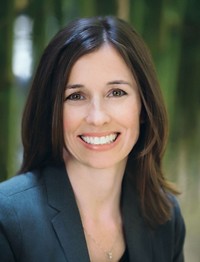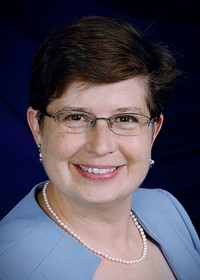Advertisement
Grab your lab coat. Let's get started
Welcome!
Welcome!
Create an account below to get 6 C&EN articles per month, receive newsletters and more - all free.
It seems this is your first time logging in online. Please enter the following information to continue.
As an ACS member you automatically get access to this site. All we need is few more details to create your reading experience.
Not you? Sign in with a different account.
Not you? Sign in with a different account.
ERROR 1
ERROR 1
ERROR 2
ERROR 2
ERROR 2
ERROR 2
ERROR 2
Password and Confirm password must match.
If you have an ACS member number, please enter it here so we can link this account to your membership. (optional)
ERROR 2
ACS values your privacy. By submitting your information, you are gaining access to C&EN and subscribing to our weekly newsletter. We use the information you provide to make your reading experience better, and we will never sell your data to third party members.
Women In Science
Movers And Shakers
Chemist Nancy Goroff is moving from research to policy
The Stony Brook professor is winding down her lab and running for Congress in New York’s first district
by Ariana Remmel
September 4, 2020
| A version of this story appeared in
Volume 98, Issue 34

It’s time for more scientists to have a seat at the table, says Nancy Goroff, the Democratic nominee for Congress in New York’s First Congressional District. A chemistry professor at Stony Brook University, Goroff took a leave of absence to campaign. If she wins in November, she will be the first woman with a natural sciences PhD elected to Congress. C&EN spoke with Goroff in late July, after she had won the Democratic primary, to talk about her campaign, the transition from research to politics, and how scientists can participate in national policy making.
Vitals
▸ Age: 52
▸ Hometown: Chicago
▸ Education: BA, chemistry, Harvard University, 1990; PhD, chemistry, University of California, Los Angeles, 1994
▸ Positions held at Stony Brook University: Chemistry professor, chemistry department chair, associate provost, interim dean of the graduate school
▸ Favorite elements: Carbon and iodine, which she uses to make organic semiconductors
▸ Congressional district: New York’s First
The following interview was edited for length and clarity.
Why did you decide to run for Congress?
I’ve been politically engaged and involved my whole life, especially in recent years as a member of the Union of Concerned Scientists. What crystallized for me that I needed to do more was the 2018 elections. I was looking at how the rhetoric coming from the president and my district’s current representative, Lee Zeldin, was all about immigration and this caravan of refugees that were coming to invade our country. I saw the disconnect between the very real problems we face that need real attention and work to solve—like climate change, health care, and income inequality—versus manufactured pretend issues used for political gain. I really want our kids to live in a world where the government is trying to make people’s lives better and policy decisions are based on facts and reality. And what they were doing was so far away from that, I needed to put my full effort into this.
Is there anything in your life as a professor and university administrator that particularly prepared you for this new challenge?
Lots. At Stony Brook, I spent a lot of time working to try to make the university better by building teams of people, building coalitions, and listening to all the different stakeholders to figure out what policy should be and then advocating to get that policy put in place. Teaching certainly helps me, because I need to teach people different concepts and I need to learn new things myself all the time. Working with grad students has been fantastic preparation for working with my campaign staff. Although in this case, it’s the campaign staff who are the experts—I’m learning from them. It’s a nice role reversal. It’s been very natural in many ways to go from my work at Stony Brook to this new challenge.
If you win in November, how do you plan to balance your career as a scientist and being a politician moving forward?
I will always be a scientist, no matter what—that’s part of who I am. But I am winding down my research lab now, and I don’t plan to go back to the university. I have decided that these problems are so important that that’s what I want to work on. Running for Congress seemed like the most straightforward way of having the impact I want to have. But if that doesn’t work out, I will find another way to help the national conversation.
How has your view of sharing science with nonexpert audiences changed over the course of your campaign?
I don’t know if it’s changed. This is something that’s been important to me for many years. In our campaign, we have worked really hard to make sure that we are a source of reliable information for people. For example, early on in the pandemic, based on questions I was getting from people in the district, we sent out an email that explained why COVID-19 is different from the seasonal flu and why it required a more serious response. Later, we had a panel discussion with local experts about the status of COVID-19 here in Suffolk County.
I certainly see my role as a representative to make sure that my constituents have access to the best information available and understand how to act on that information. I also want to be a resource for all members of Congress, both Republican and Democrat. They can have all their questions answered and then have their feet held to the fire so we take meaningful action on the issues that have a scientific component.
Is there anything you wish that you had known before going into the campaign?
What has surprised me the most is how fulfilling this has been. It’s been much more enjoyable every day than I maybe expected. I knew it was going to be hard work, and it is hard work. But it’s much more satisfying and more fun than I thought.
Is there anything that makes chemists particularly well suited to solving policy problems?
I think there are certainly problems where chemistry is directly important. But I think the skills that we need in Congress are broader than that. It’s the ability to look at data and analyze the situation and embrace the complexity of real life that I think make me particularly well suited. And I would couple that with my work as an educator and as a leader at Stony Brook, and advocating for my students, staff, and faculty.
Not every scientist is able to run for public office. What does “having a seat at the table” mean for scientists who want to remain private citizens?
There are certainly many important roles that scientists need to play. I think getting involved at any level in the political process is helpful—whether that’s commenting on changes in regulations or supporting candidates that people think represent their values. Certainly voting is critically important. The Union of Concerned Scientists has a network where they will match activists from local communities with scientists who can help them understand data, so that when those activists go to their local, state, or federal representatives, they are armed with the best information available.
Do you have any advice for other scientists who are interested in going into policy making or politics?
I think this is a point where we need more scientists involved in public discourse. I strongly encourage people to do it if they want to. For people who are earlier in their careers, the American Association for the Advancement of Science’s Science and Technology Policy Fellowship is a terrific opportunity that I think has helped a lot of early-career scientists find out more about the policy world.
Academic institutions across the country are trying to deal with systematic racism and inequality within their organizations. What advice do you have for people who are trying to make changes at their own universities?
I think this is a really important issue, and it’s challenging. It’s very important that people do lend their voices to this and let our students know that we have their backs. And not only our students but junior faculty—there are all kinds of hierarchies and all kinds of power differentials in academia. It’s important that those who are less powerful know that the people who are more powerful are supporting them.
How has your campaign been affected by the COVID-19 pandemic?
We’re in New York, so we were affected very early, very directly. We stopped doing in-person campaigning in early March, and it’s affected every aspect of day-to-day campaign stuff. But I think it also has led people to be that much more appreciative of the role of science and the importance of having scientists at the table for policy making. They’ve seen how scientific advisers can be sidelined.
A lot of people are feeling like things are a little grim right now. Is there anything that gives you hope for the future?
The fact that there are so many people who are excited about getting a scientist elected, and that this message is resonating so strongly in my district and across the country. The fact that Joe Biden is using science as a core part of his messaging. People are seeing the value of looking at the science and listening to scientists. That people are turning away from the president’s anti-science messaging gives me tremendous hope.
Update
Nancy Goroff lost the race to incumbent Lee Zeldin, who received 55% of votes.
Correction
This story was revised on Sept. 7, 2020, to reflect the fact that Nancy Goroff would be the first woman with a natural sciences PhD elected to Congress, not the first woman with a PhD elected to congress.




Join the conversation
Contact the reporter
Submit a Letter to the Editor for publication
Engage with us on Twitter